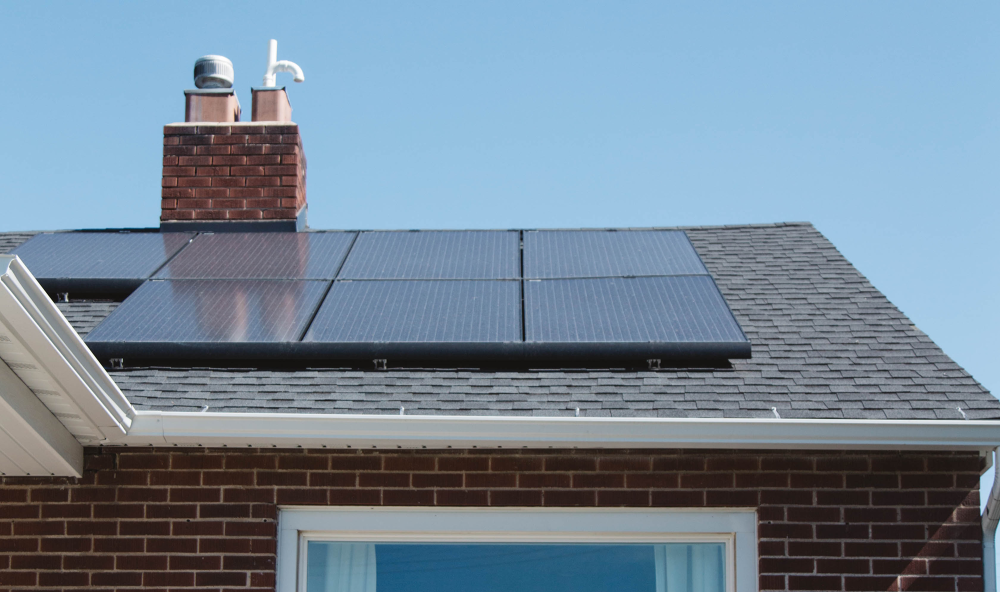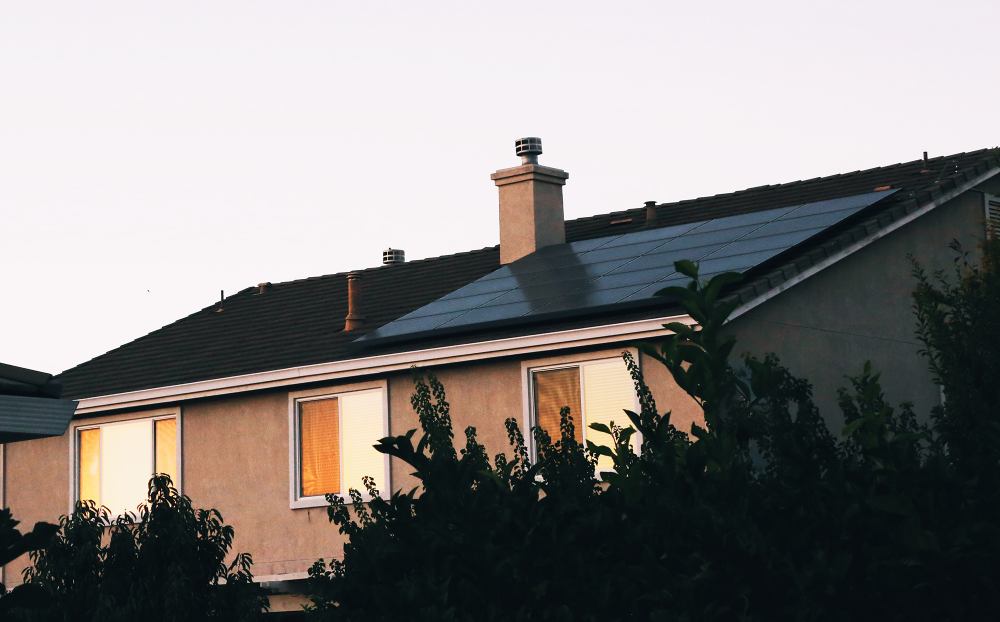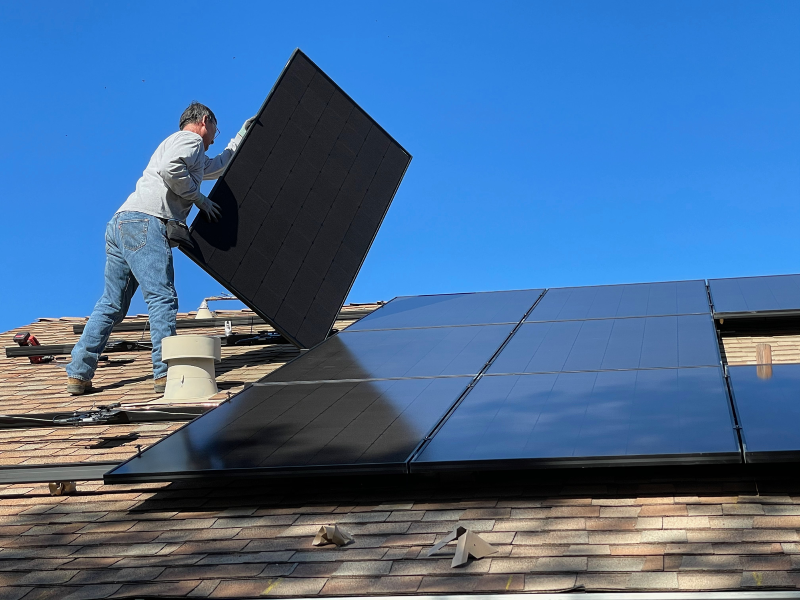Going solar
Tips and considerations for homeowners

Solar equipment contract options
The most common options are:
Power purchase agreement (PPA). You usually do not pay for installation. You pay a certain rate (defined in the contract) for the energy the panels produce. Your rate generally increases by a certain percentage each year. The solar company owns the equipment and is responsible for maintenance and repairs. These contracts are generally for 20 years or more.
Lease. Solar leases are long-term rental agreements that usually require little or no up-front payment. You pay monthly to have the solar panels on your home, and may use all the energy they produce. The solar company owns the system and is responsible for maintenance and repairs. These contracts are usually for 20 years or more.
Purchase. You own the solar-energy system and you are responsible for maintenance and repairs. You may qualify for tax credits or other incentives. These systems can be quite expensive, so most people finance their purchase through a loan. The solar company may give you an estimate of how much you will save with the system, but remember that no one can predict electric-utility rates, especially over the life of the solar panels. Estimates of savings are usually not guaranteed.
To find out if you qualify for tax credit, consult a tax advisor and submit the following form:
Instructions for filling out tax form
Key terms in solar contracts
Understand common terms to choose the contract that’s right for you.
Net metering: Two-way flow of electricity through a home’s electric meter.
There will be fluctuations in the amount of energy your system generates. At times you will produce more power than you need. At other times you will not produce enough, and you will have to purchase energy through the power grid. With net metering, any extra electricity you generate can help pay for the electricity you have to buy.
Term: Length of a solar lease or PPA.
This is a long-term financial commitment, usually 20 years or longer, that cannot be cancelled without a large financial penalty.
Power production guarantee: Amount of electricity that the solar company guarantees your equipment will generate.
Price escalator: Yearly price increase written into your contract. In a PPA, the rate you pay the solar company for the power generated by your system usually increases 2.9% per year over the life of the contract. For a lease, the price you pay to rent the solar system may be fixed for the entire length of the contract, or may increase over time.

Tips for a sunny outcome
Get references. Ask solar companies you’re considering for the names of customers near you who can provide input.
Consider the future sale of your home. Even if you sell your home, you will still be responsible for the remaining payments on your loan, lease, or PPA. Some solar companies allow whoever buys your home to take over the payments (if they meet the companies’ requirements).
Get a power-production guarantee. Make sure any lease or PPA you sign includes a power-production guarantee that spells out how the solar company must pay you if the equipment does not produce the amount of electricity stated in the contract. If you are making a purchase, make sure the warranty guarantees that the panels will produce electricity.
Protect your roof. Find out if the contract insures your roof. If you have a warranty on your roof, the installation of solar equipment may void it. You may also have additional expenses if equipment must be removed and reinstalled to perform roof repair. Also consult your homeowners insurance company to find out how solar panels may affect your policy.
Consult an attorney, especially for a large solar farm. Leases and options for solar farms are much more complex than residential solar contracts. Consult a private attorney and farm or forestry agents before signing.
Remember: You will still have an electric bill. While home solar-energy systems can supply most of your power, your home will stay connected to the grid in case you need power. You will have to pay to stay connected, as well as pay for any grid energy you use.
Installation process
Installing a solar-power system on your home can take several months and consists of the following steps:
Site evaluation. A solar company evaluates your electricity use, your property, and your home to see if your situation is suitable for solar equipment. If so, the company proposes a system and a price.
Contract. Solar contracts are typically presented to you as an electronic document. Take your time to read it carefully. Request a hard copy, if that is easier to review. Get any oral commitments in writing in the contract. The company is required to give you at least three business days to cancel.
Permits and approvals. Installing solar equipment requires many permits, inspections, and other approvals. Make sure the contract clearly outlines who is responsible for getting these approvals.
Installation and grid connection. Solar equipment can usually be installed in one to two days. However, your utility company may wish to inspect it before allowing it to operate.
Deceptive practices, damaged roof, or fraud?
You can file a complaint about a solar company with the Office of the Attorney General. Consumer complaints help consumers and companies resolve problems and alert the OAG to questionable companies.
For example, consumer complaints led to an OAG investigation into Vivint Solar (since acquired by Sunrun), which resulted in a settlement between the OAG and the company. Read more about the Vivint Solar settlement.
It’s not all sunshine and rainbows
Going solar might not actually save you money. Nobody can predict what energy prices will be in the future.
Going solar may actually increase your costs. You will still have an electric bill. Even if solar energy provides all your solar needs, you will remain connected to the grid. This costs money.
You may not qualify for a tax credit. Companies often mention tax credits to make their products sound more attractive. Most tax credits are for income tax, which won’t apply to you if you don’t have an income. Other incentives benefit the solar panels’ owner — that’s the company, not you, if you have a PPA or lease.
Expect a credit check. Before finalizing the contract, the company will do a credit check, which can affect your credit rating.
You will pay, one way or another. The solar company or lender will file a lien against the panels on your home when you enter a PPA or lease. This means that, if you can’t pay back the loan or lease, you will lose the panels.
Don’t be in the dark about home solar-energy systems
Do your research. Find online reviews of the companies you are considering. A great place to start is the Better Business Bureau, which publishes a list of accredited companies.
Understand your buying options. These include power purchase agreement (PPA), lease, and purchase (often financed). We have provided brief descriptions of each. Visit the websites we’ve listed for more information.
Be aware of the timeline. Going solar is a long-term commitment. PPAs and leases are usually 20- to 25-year contracts that cannot be ended without large penalties, even if you die.
Read your contract and make sure you understand it. How long is the term? What is the cost? What happens with the extra solar energy you produce? What are your obligations and what are the solar company’s? What if you have to remove the panels to repair your roof?
Don’t let salespeople push you around. Resist high-pressure sales tactics. Write down the name of anyone you talk to. Get all promises and conditions in writing. Take your time to read the whole contract. If you want a hard copy of a proposed contract, ask for one, even if the transaction is being conducted electronically. Ask as many questions as necessary to understand all the terms of a potential contract.
Know what you are signing. Some sales reps mislead consumers about what they are signing (especially on tablets where you can’t see everything). Don’t sign something you don’t agree to!
Shop around. Get proposals from more than one solar company to compare.
Team up with neighbors. See if your community has a “Solarize” or “Community Solar” buyers’ club.

Resources
Office of the New York State Attorney General
Read our tips on hiring a home improvement contractor
Federal Trade Commission
Read about solar power for your home
Clean Energy States Alliance
A Homeowners Guide to Solar Financing: Leases, Loans & PPAs
NY-SUN Incentive Program
Making solar affordable for all New Yorkers
